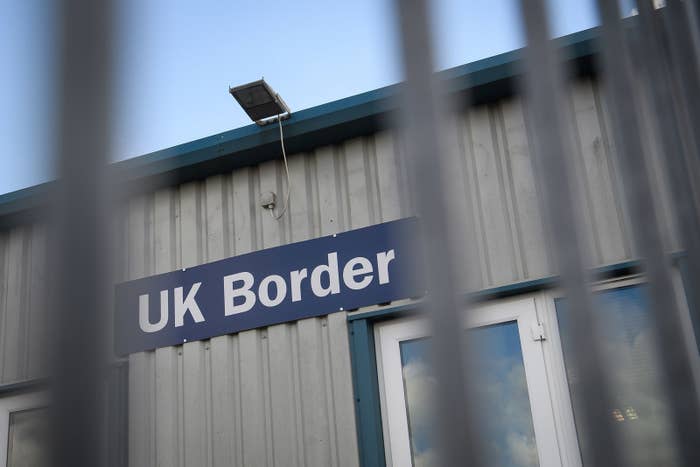
Britain's immigration system will be clogged with delays unless the Home Office is given more resources after Brexit, two former senior immigration officials told an influential parliamentary committee on Tuesday.
"I don't think they can cope with it," David Wood, the UK's former head of immigration enforcement, told the Commons home affairs committee when asked if the department has the resources to handle a much bigger workload when Britain leaves the European Union.
"I don't think under current resources the challenge of Brexit can be met, and certainly not met smoothly," he added. "There's no doubt in my mind of that."
John Vine, a former independent inspector of borders and immigration, agreed, and told the MPs the UK's border controls will have to be overhauled to deal with a stricter immigration regime after Brexit.
"If they don't look at fundamental changes to the model, it's going to mean that there's going to be greater delays at the border," Vine said.
Theresa May's government insists that European citizens will lose their rights to move freely to the UK when it leaves the EU in 2019. Brexit is expected to put pressure on the Home Office in several ways, including more stringent checks on EU citizens arriving at the borders, "regularising" the immigration status of around 3 million EU citizens currently living in the UK, and carrying out customs clearances.
Adapting the customs system will be the most challenging, the former officials agreed.
Wood said it would be "near impossible" to have a new customs system up and running by the time Britain leaves the EU in March 2019.
On Monday, the government published a customs white paper confirming Britain's intention to leave the EU's customs union after Brexit. The paper indicated that the UK is already planning a new standalone customs regime in anticipation of not reaching a deal with the EU by the time Britain leaves.
Managing the arrival and departure of EU citizens at the UK's borders will also be challenging, the officials said. Britain's border infrastructure is already under pressure from budget cuts and outdated technology. After Brexit, the need for stricter checks on vast numbers of travellers from the EU who were previously fast-tracked will add significant delays, they said.
The UK's border controls are "person-intensive", Vine said. New technology can be introduced and travellers can be pre-cleared, as they are in the US, to lighten some of the burden. But, Vine added, "It's probably not going to be possible for 2019."
Processing the applications for "regularisation" of 3 million EU citizens so they can stay living in the UK will require staff to be diverted from other areas, Wood said, which will create backlogs elsewhere in the Home Office.
Preparation for the post-Brexit workload needs to happen right away, the former officials said. It will take around six months just to recruit and vet new staff, followed by a period of disrupted productivity while those new hires are trained.
Ed Davey, the Liberal Democrats' immigration spokesman, said: "The department already suffers from chronic underfunding and the inability to get on with the day-to-day job, being under political pressure to deliver on ludicrous Conservative policies like reducing immigration to the tens of thousands."
A spokesperson for the Home Office said: "We are committed to ensuring that our operational teams have the resources they need to run an efficient and effective migration system, tackle illegal immigration and keep the UK safe."
